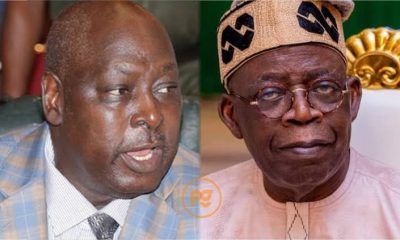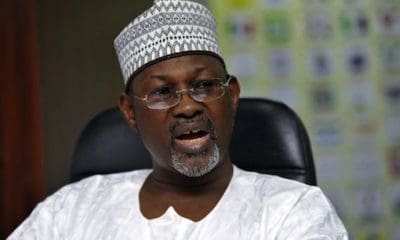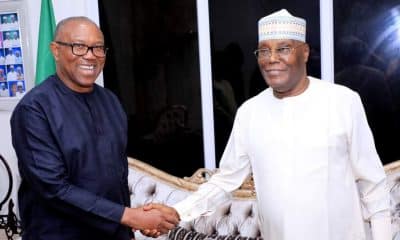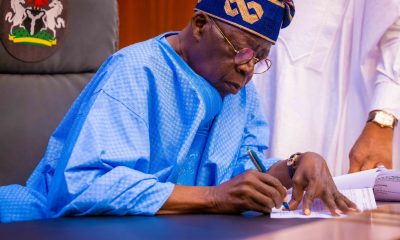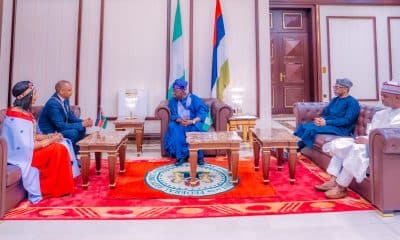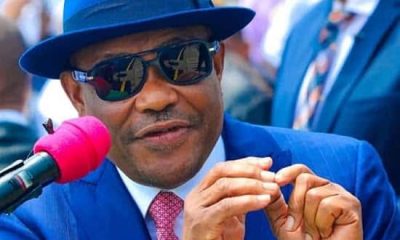Nigeria News
Six Major Landmarks In Tinubu’s First 100 Days As President
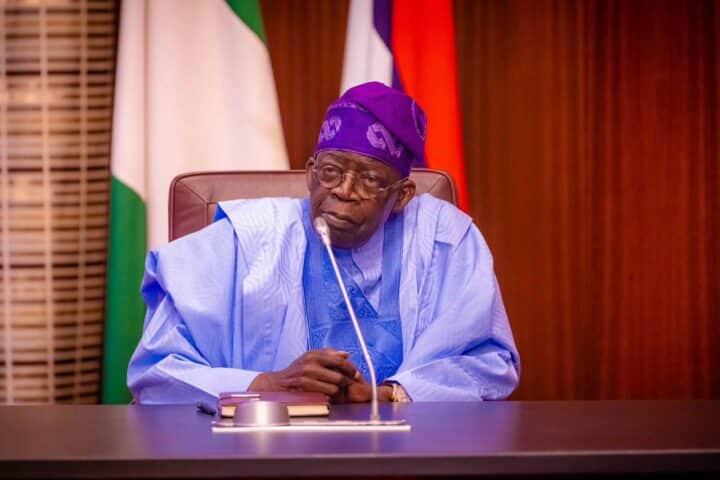
Since his inauguration on May 29, 2023, President Bola Tinubu has made some drastic decisions that have stirred up a lot of controversies.
Naija News reports that in his first 100 days as president of Nigeria, significant landmarks have been recorded.
Tinubu, who clocked his first 100 days in office on Tuesday, 5 September, has been criticized for some of his landmark decisions that have caused untold hardships in Nigeria.
This platform discusses six of these significant landmarks by the president.
1. Fuel Subsidy Removal
Upon his inauguration on May 29, President Tinubu declared an end to the fuel subsidy regime.
While reading his inaugural speech, the president said, “Subsidy is gone.’ According to him, provisions were not made in the 2023 budget to continue the subsidy.
Following his declaration, the pump price of petrol surged from below N200 per litre to N570 and, subsequently, 617 per litre.
2. Suspension of the Central Bank Governor, Godwin Emefiele, and Chairman of the Economic and Financial Crimes Commission (EFCC), Abdulrasheed Bawa.
Naija News gathered that on June 9, the president announced the suspension of Emefiele.
In a statement issued by the Director of Information at the office of the Secretary to the Government of the Federation, Willie Bassey, Emefiele was directed to immediately hand over the affairs of the apex bank to his Deputy, Ayodeji Adegboyega.
According to the statement, his suspension was a sequel to the ongoing investigation of his office and the planned reforms in the economy’s financial sector.
Also, on June 14, the president similarly suspended the EFCC chairman, Bawa. In a statement by the Office of the Secretary to the Government of the Federation (SGF), Bawa’s suspension was indefinite.
Both Emefiele and Bawa were subsequently arrested and still in the custody of the Department of State Services (DSS).
3. Forex Unification
President Tinubu on June 29 ended the preferential exchange rate system. He affirmed that ending the preferential exchange rate system was crucial to fighting the significant imbalances plaguing our economy.
Speaking at a civic reception organized in his honour by the Lagos state government at the Lagos House, Marina, he said he could have chosen to keep the previously multiple foreign exchange system and benefit from it, but instead, he decided to unify the official and parallel market rates to save the country from financial hemorrhage.
4. Tinubu Emerged ECOWAS Chairman
On July 9, the president emerged as Chairman of the Economic Community of West African States (ECOWAS) in Guinea-Bissau.
Tinubu, at his engagement at the 63rd Ordinary Session summit of the West African bloc, succeeded Umaro Embalo, President of Guinea Bissau, as ECOWAS chair.
5. Cabinet Formation
On July 27, the president submitted his first batch of ministerial list to meet the constitutional 60-day deadline.
The list, which constituted 28 names, was delivered to the Senate by Tinybu’s Chief of Staff, Femi Gbajabiamila.
He again, on August 2, sent the second batch of 19 names to the Senate.
The president subsequently withdrew the nomination of Maryam Shetty as ministerial nominee from Kano State and replaced her with Mariya Mairiga Mahmud and Festus Keyamo.
6. N5 billion State and FCT palliative
As part of efforts to cushion the hardship from the fuel subsidy removal, President Tinubu, on 17 August, approved a N5 billion palliative for all states of the federation, including the FCT.
The N5 billion, as gathered, has a 48 per cent loan component and a palliative component of 52 per cent. It also came with releasing a certain quantity of grains to each state to be distributed to the poor.
Last week, the federal government confirmed N2 billion of the money had been issued to all states and the FCT.

